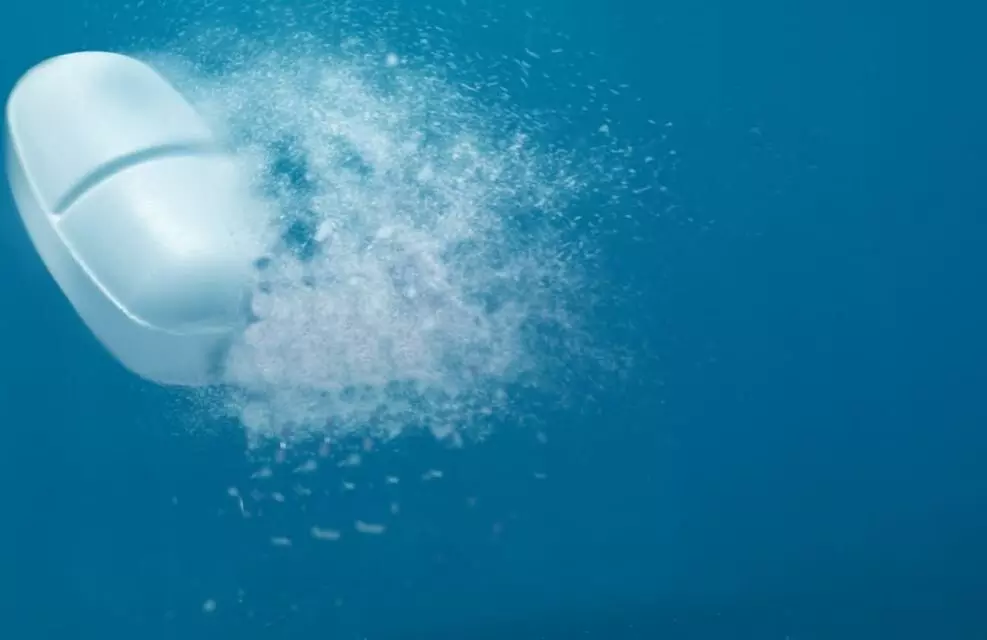Unused medicines and mounting antibiotic residue contaminating Indian rivers: Study
The contamination of water sources with antimicrobial drugs has had grave consequences in India. What is the right way to dispose of unused or expired antibiotics so that they do not find their way into our water sources?
 गाँव कनेक्शन 28 Feb 2022 10:05 AM GMT
गाँव कनेक्शन 28 Feb 2022 10:05 AM GMT

Antibiotic pollution in Indian rivers. Photo: Toxics Link
Do you dump your unused or expired medicines in your waste bin or throw it down the drain? Chances are that they ultimately end up in rivers, threatening the health of both aquatic and human life.
A study has raised serious concerns over antibiotic residues found in river water samples across India.
While antibiotics are life-saving medicines, their indiscriminate use can harm. Added to this is the lack of any regulatory standards to prevent pharmaceutical industries from discharging them into water resources.
This was revealed in a study titled Menace of Antibiotic Pollution in Indian Rivers released by a New Delhi based non profit Toxics Link on February 25.
Three antibiotics — Ofloxacin, Norfloxacin, and Sulfamethoxazole — were detected in the water samples from four Indian rivers — Yamuna (New Delhi), Gomti (Lucknow), Zuari (Goa), and Cooum (Chennai).
"The antibiotics detected are found to be 2 to 5 times higher than the draft notification limits proposed by the Union environment ministry for the respective compounds," Omkar Gaonkar, programme coordinator, Toxics Link, was quoted, in a press statement.
The study found Ofloxacin (0.71 µg/L) and Sulfamethoxazole (0.2 µg/L) in samples collected from Yamuna River. Norfloxacin (0.93 µg/L) was present in the Zuari River, as was Ofloxacin (0.54 µg/L) in the Gomti River and Cooum.
Rising antimicrobial resistance
The use of antibiotics has grown multiple folds in the last few years. For instance, global antibiotic consumption in humans increased by 65 per cent between 2000 and 2015, whereas consumption in animals is expected to increase by 11.5 per cent between 2017 and 2030, noted the Toxics Link study.
However, poor management of antibiotics through its lifecycle from design and production to use and disposal, has led to them contaminating terrestrial, freshwater, and marine environments. This has led to an exposure of bacterial communities and ecosystems to a large number of antibiotic residues, also resulting in an emerging public health concern of antimicrobial resistance.
Common and life-threatening infections such as pneumonia, gonorrhea, and post-operative infections, as well as HIV, tuberculosis, and malaria, are increasingly becoming untreatable because of antimicrobial resistance, highlighted the Toxics Link report.
Considered a global issue of concern, the World Health Organization (WHO) declared antimicrobial resistance as one of the top 10 global public health threats. The Toxics Link study highlighted that the contamination of water sources with antimicrobial drugs has had grave consequences in India, where an estimated 58,000 newborns die from multidrug-resistant infections every year.
Since rivers and lakes are widely used as sources of drinking water, irrigation and for recreational purposes, the entry of antibiotics and the resulting growth of antibiotic-resistant genes in those systems make their management more complicated.
Routes of antibiotic residues into water.
Antibiotic pollution has direct implications in the economic, environmental and social spheres, considered the three main pillars of sustainable development. Antibiotic pollution in the aquatic environment affects the sustainable development goals of 'Good health and well being', 'Clean Water and Sanitation', 'Responsible Consumption and Production', and 'Life Below Water'.
In the context of developments and the research findings, Toxics Link study has recommended creating take-back programmes where the patients can return their unused medicines. It also recommends treatment of wastewater from healthcare facilities before release, and user-friendly guidelines that can be followed by healthcare facilities and general consumers on the right way to dispose of expired or unused medicines.
#story #RiverPollution #antibiotics #medicines
More Stories




